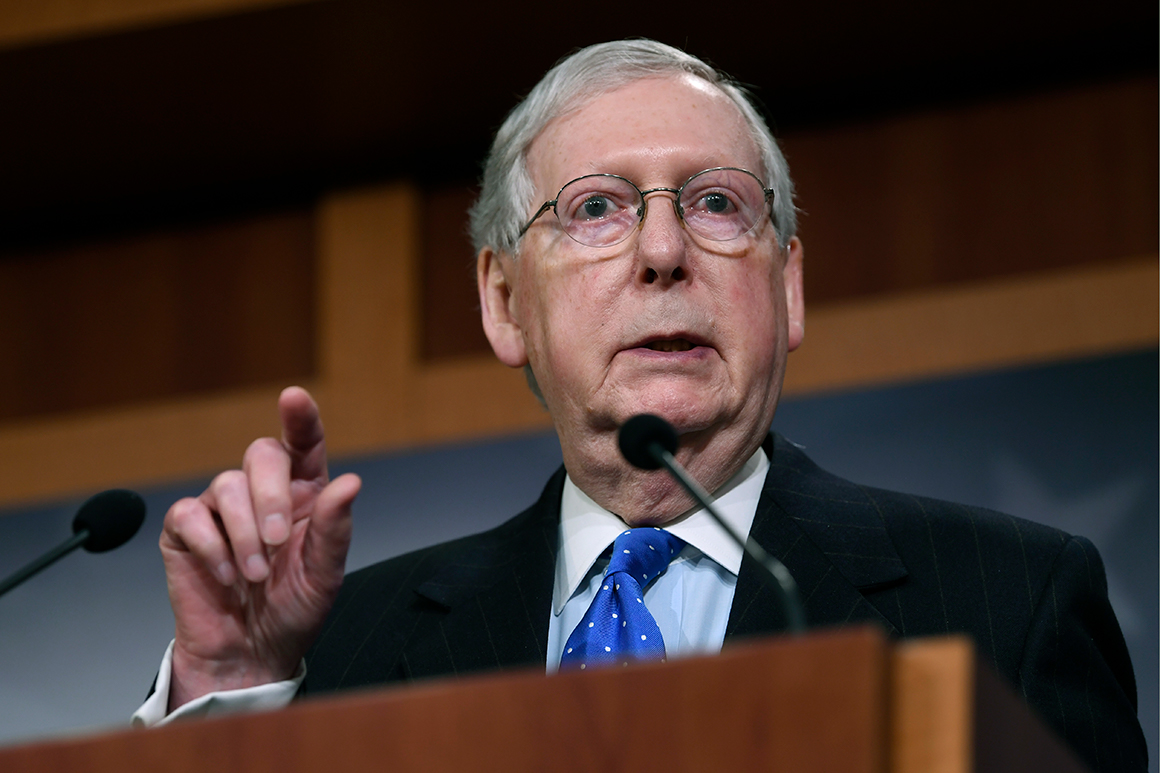Democratic leaders are panning Mitch McConnell’s offer to marry new liability protections with aid to state and city governments, signaling a tough fight is ahead for Congress’s next round of coronavirus aid.
Senate Majority Leader Mitch McConnell (R-Ky.) said in an interview on Monday afternoon that he is “going to insist” that providing liability protections to businesses and employees be part of the next bill that will provide billions to local governments. But Speaker Nancy Pelosi (D-Calif.) and Senate Minority Leader Chuck Schumer (D-N.Y.) may not go along.
On MSNBC on Tuesday morning, Schumer said McConnell’s proposal is “subterfuge,” though he did not entirely rule it out of a potential deal. Still, Schumer and Pelosi made clear Tuesday that Democrats are cool to what McConnell is talking about.
“There’s going to be massive layoffs at the state and local level unless we get some money to them quickly,” Schumer said. “And when McConnell says we’ve got to do A, B, C, D, which is irrelevant to getting the people the money they need, that’s wrong.”
Drew Hammill, a spokesman for Pelosi, said “the House has no interest in diminishing protections for employees and customers.”
Some Republicans from coronavirus-wracked states like Louisiana and New York want to provide more money to their states, while others oppose even the general idea of sending states money. After repeatedly panning bailouts of state and local governments and suggesting they might declare bankruptcy instead, McConnell on Monday said he could support adding more state and local money “provided we have the right kind of nonfinancial relief.”
“We probably will do another bill. What I’m saying is it won’t just be about money. It will be about other things that we think are important in the aftermath of this pandemic. And at the top of my list is liability protections for the brave people who have been manning the front lines during this and the brave people who will be opening their businesses fearful that they will be sued,” McConnell said on Monday.
Quint Forgey contributed to this report.



















